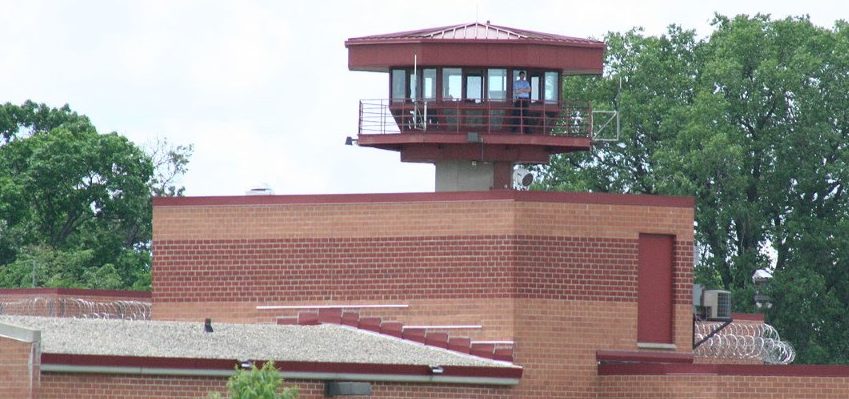 “The last thing we need is to be creating divisiveness in our corrections community,” said @RepRohrkaste about @GovEvers' plan to give pay raises to only a select group of corrections workers. #wiright #wipolitics Click To Tweet
“The last thing we need is to be creating divisiveness in our corrections community,” said @RepRohrkaste about @GovEvers' plan to give pay raises to only a select group of corrections workers. #wiright #wipolitics Click To Tweet
MacIver News Service | May 10, 2019
By M.D. Kittle
MADISON, Wis. — Republicans on the Legislature’s budget-writing committee want to correct an Evers administration Corrections compensation plan that provides temporary $5-per-hour raises at some but not all state prisons, a move that critics say will shatter morale and exacerbate recruitment problems at the corrections facilities left out.
“This is bad human resource practice,” said state Rep. Mike Rohrkaste (R-Neenah) a member of the Republican-led Joint Finance Committee. Rohrkaste knows a thing or two about human resources; he’s spent his career in private-sector HR.
“We agree (corrections pay) is an issue, but to do something for a select group at the expense of others, it’s creating discord,” the lawmaker told his Democratic finance committee colleagues Thursday at a JFC executive meeting. “The last thing we need is to be creating divisiveness in our corrections community.”
The committee passed on a party-line vote a motion by state Rep. Mark Born (R-Beaver Dam) to “take a more comprehensive look” at correctional officer pay, which is at about $2 an hour lower than the average for Midwest states, according to a recent legislative audit.
“We agree (corrections pay) is an issue, but to do something for a select group at the expense of others, it’s creating discord,” Rep. Rohrkaste said.
Born’s motion would use $3.7 million from a discretionary merit compensation program to begin building across-the-board wage increases for correctional officers at state corrections facilities. More funding would be added to the pay increases during the budget-writing process, legislative officials said. Critics of the merit pay program say the awards tend to sow animosity among corrections staff.
The finance committee’s four Democrats voted against the motion, asserting Republican leadership over the past eight years created a “crisis” situation in Wisconsin’s prison system.
“You had eight years to do a more comprehensive approach and you failed to do it so now we’re in a crisis,” said Rep. Chris Taylor (D-Madison). “The crisis is in some of the higher-need facilities, they have to utilize pay incentives.”
Rohrkaste asserts Gov. Tony Evers’ selective pay raises for guards at corrections facilities in Columbia, Dodge, Green Bay, Taycheedah, Waupon and Lincoln Hills/Copper Lake schools will create an environment of “haves and have-nots” in Wisconsin corrections.
The Evers administration defended the raises — in effect until June 20, 2020. Corrections officials say they are targeting institutions based on greatest security risks, vacancy rates, and recruitment data.
Things are tough all over, according to a letter this week from 19 Republican Assembly members to Evers and Kevin Carr, his Department of Corrections secretary-designee. The letter notes the statewide correctional officer vacancy rate was at 14 percent, as of June. That’s a 7.3 percent increase from 2014, according to the state audit. The average starting wage of Wisconsin correctional officers is $16.32 per hour.
“All of Wisconsin’s corrections officers face challenges as they work to keep their facilities secure and the public safe while also helping to rehabilitate offenders,” states the letter, signed by Assembly Speaker Robin Vos (R-Rochester), Majority Leader Jim Steineke (R-Kaukauna) and Rep. Michael Schraa (R-Oshkosh), chairman of the the Assembly’s Corrections Committee.
“Singling out some officers over others to receive the benefit was not well thought out,” the letter continues. “It is fundamentally unfair and creates unnecessary animosity in a system that already needs reform.”
State Sen. Howard Marklein (R-Spring Green) said correctional officers at every maximum security prison received a pay increase, with the glaring exception of the Boscobel Prison located in his district. Marklein said the decision punishes the southwest Wisconsin prison for its success in recruitment and retention.
“But now these same staff are being left behind their colleagues at other institutions,” the senator said in a recent press release. He noted the $5 per-hour increase gives all other correctional officers the potential to earn $10,000 more per year for doing the exact same job.
“I would not be surprised if the Boscobel Prison suddenly develops a vacancy problem now that Governor Evers’ administration has created a strong incentive for Correctional Officers to transfer to other institutions. If they stay, the Officers will be doing the same difficult job as their colleagues for much less compensation,” he said.
Marklein said DOC Secretary-Designee Kevin Carr disinvited him to a recent department-led listening session on the selective pay increases. The senator said he was contacted by constituents, Boscobel Prison correctional officers, asking him to attend the meeting with staff. Corrections officials told Marklein he could not attend because the meeting was an internal matter.
“Unfortunately, Governor Evers’ Secretary-Designee determined that I was not invited to an internal meeting even though several of my constituents asked me to be there. Despite the Governor’s pledge for transparency, I was uninvited.”
MacIver News Service can relate. In February, MacIver reporters were barred from attending a Capitol press corps budget briefing with the governor, despite the fact that MacIver News has long been a credentialed member of the Capitol press corps. The governor’s office has yet to respond to a number of MacIver’s information requests, making it clear that, like the pay raises the administration has granted, Evers’ pursuit of government transparency is a selective effort.